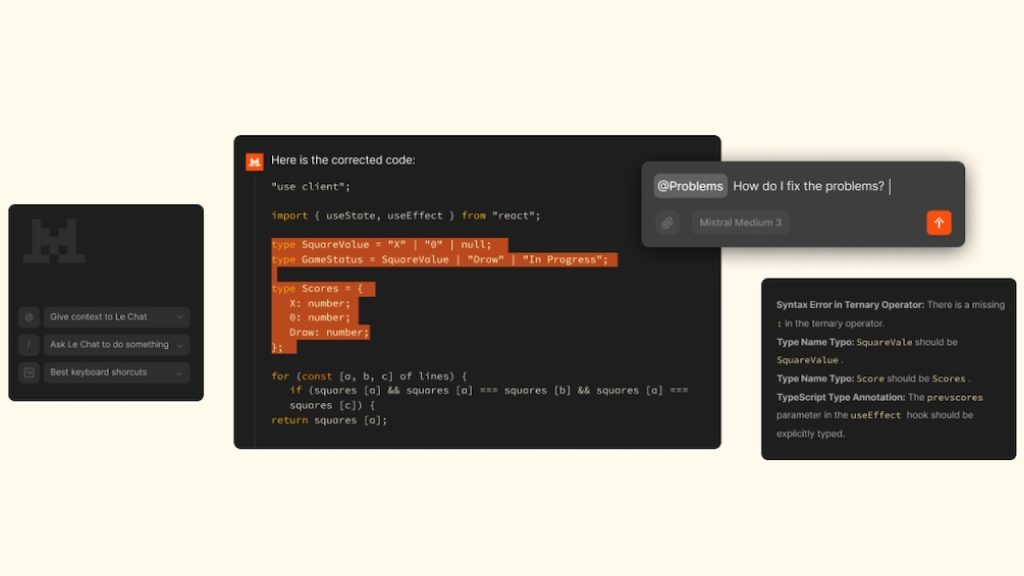French AI startup Mistral AI has launched Mistral Code, an AI-powered coding assistant that targets enterprise developers, bundling proprietary models with integrated development environment (IDE) tools. The platform aims to rival established offerings like GitHub Copilot.
Mistral Code offers enterprises a significant enhancement in productivity and greater control over their data and AI models. Key features include on-premise deployment options and the capability for fine-tuning. The system is designed to address common concerns associated with existing AI coding tools.
A private beta is now open for JetBrains IDEs, as detailed by Mistral AI, and Microsoft’s VS Code.
Enterprise-Focused Design and Capabilities
Mistral Code builds upon the open-source project Continue. However, Mistral AI clarifies its offering is “reinforced with the controls and observability that large enterprises require.” The platform aims to tackle key adoption blockers seen in mainstream AI copilots. These include limited connectivity to proprietary systems, minimal model customization, shallow task coverage, and fragmented service agreements.
Mistral AI emphasizes its platform differs from “typical SaaS copilots,” offering a vertically integrated stack from one provider with unified SLAs. This ensures all code remains within the customer’s enterprise boundary, as detailed in its announcement.
Mistral Code leverages the company’s ongoing development of specialized AI models, which now form the core of this new coding client. These include its Codestral for autocompletion, Codestral Embed for code search, Devstral for complex “agentic” coding tasks, and Mistral Medium, detailed by Mistral AI, for chat assistance. It supports over 80 programming languages and allows third-party plugin integration. Codestral, a 22-billion parameter open-weight model, is available on HuggingFace and licensed under the Mistral AI Non-Production License for research, with commercial licenses also available.
For IT managers, an administration console provides detailed platform controls and deep observability into usage, according to Mistral. Furthermore, customers can fine-tune models on their private codebases. Mistral AI, established in 2023 in France, particularly focuses on data privacy and compliance with European regulations.
Mistral’s approach with Mistral Code, offering on-premise deployment and fine-tuning, appears designed to give enterprises more control. This could potentially mitigate some risks associated with purely cloud-based AI services.
Several major enterprises are already using Mistral Code. These include consulting firm Capgemini, as announced by Mistral AI, Spanish and Portuguese bank Abanca, and French national railway company SNCF. Mistral AI also plans to contribute some enhancements back to the Continue open-source project.
With Mistral Code, the company is making a concerted push into the enterprise AI market. The new coding assistant follows other recent enterprise-focused releases. These include Le Chat Enterprise, announced by Mistral AI, and its powerful Agents API, which equips developers with advanced agent-building tools.
Broader AI Strategy and Future Outlook
Mistral AI’s website describes its coding assistant vision as a way to “Transform development workflows with an AI coding assistant that understands, completes, and optimizes your code.”
The company’s Agents API, launched in late May, showcases the sophisticated backend capabilities powering such developer tools. It offers features like a Python-based Code Interpreter, and support for the Model Context Protocol (MCP), which is seeing rapid adoption by many companies, including OpenAI.
While the industry embraces interoperability standards like MCP, it also faces emerging challenges such as the recently deiscovered “Toxic Agent Flow” security flaw related to MCP server integrations.

